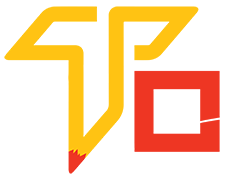Who this O'level course is for?
“O’ level” typically refers to the Ordinary Level qualification in some educational systems, particularly in countries that follow the British education system or similar structures. In the British system, it refers to the General Certificate of Education (GCE) Ordinary Level, commonly known as “O-levels.”
Why take this O'level course?
Here are some compelling reasons to take the O’ level computer course:
- Digital Literacy: In today’s technology-driven world, computer literacy is essential. This course equips students with fundamental digital skills and knowledge, making them more adept at using computers and various software applications.
- Career Opportunities: Many careers and industries now require basic computer skills. By taking the O’ level computer course, students can enhance their employability and be better prepared for a wide range of job opportunities.
- Foundation for Further Studies: For students interested in pursuing higher education in computer science or related fields, the O’ level computer course provides a solid foundation. It introduces them to core concepts and programming languages, making the transition to more advanced courses smoother.
- Problem-Solving Skills: Computer science involves logical thinking and problem-solving. Through programming exercises and projects, students develop analytical and critical thinking skills that are valuable in various areas of life.
- Technological Independence: Knowing how to use computers and software effectively empowers students to be self-sufficient in their personal and academic lives. They can handle tasks like creating documents, managing data, and conducting online research more efficiently.
- Creativity and Innovation: Computer science is not just about programming; it also involves creativity and innovation. Students can explore multimedia, graphics, and even develop their own small projects, fostering creativity and self-expression.
- Adaptation to Technological Advancements: Technology evolves rapidly, and the O’ level computer course helps students stay updated with current trends. It prepares them to adapt to new technologies and learn continuously throughout their lives.
- Digital Communication: In the digital age, effective communication includes online communication. The course might cover email etiquette, online collaboration tools, and responsible internet use.
- Awareness of Cybersecurity: Understanding computer systems also involves being aware of potential risks and cybersecurity threats. This course can instill good online safety practices in students.
- Practical Life Skills: Beyond the academic and career advantages, computer skills are valuable in daily life. From managing personal finances to planning events, computers play a role in various aspects of life.
What you will learn in O'level ?
Here are some common subjects and what you might learn in O’ level:
- English Language: Develop language skills in reading, writing, listening, and speaking. Study grammar, literature, and improve communication abilities.
- Mathematics: Learn mathematical concepts such as algebra, geometry, trigonometry, and calculus. Develop problem-solving and analytical skills.
- Science: Study basic sciences like Physics, Chemistry, and Biology. Learn about scientific principles, conduct experiments, and understand the natural world.
- Social Studies: Explore subjects like History, Geography, and Civics. Understand societies, cultures, historical events, and global issues.
- Foreign Languages: Learn the basics of a foreign language, such as French, Spanish, German, etc., to develop language skills and cultural awareness.
- Information Technology (IT) / Computer Studies: Gain computer literacy, understand basic programming concepts, and learn to use software applications.
- Physical Education (PE): Participate in physical activities to promote fitness, teamwork, and overall well-being.
- Art and Design: Explore creativity through drawing, painting, and other artistic expressions.
- Religious Studies / Ethics: Study about different religions, moral values, and ethical considerations.
- Business Studies / Economics: Learn basic economic principles and business concepts.
- Home Economics: Study practical life skills like cooking, sewing, and home management.
- Music: Learn about music theory, instruments, and appreciation of different genres.
- Literature: Analyze literary works, poems, and plays to develop literary understanding and critical thinking.
- Additional Electives: Depending on the school and curriculum, students may have the option to choose additional subjects according to their interests.
SALARY & PACKAGES
Administrative Assistant: Salary Range: $25,000 to $40,000 per year
Customer Service Representative: Salary Range: $30,000 to $45,000 per year
Retail Sales Associate: Salary Range: $25,000 to $35,000 per year
JOBS & PROFILES
There are many job profiles are avaliable in varanasi & all over India. Such Job Profiles name is – Data Entry Operator, Telemarketer, Delivery Driver, Security Guard, Warehouse Worker, Personal Assistant, Hotel Front Desk Clerk, Sales Assistant, Cashier, Office Clerk.
O'level course syllabus detail
Language skills, including reading comprehension, writing, grammar, and vocabulary.
Core mathematical concepts, including algebra, geometry, trigonometry, and basic calculus.
Basic scientific principles in physics, chemistry, and biology.
More advanced mathematics, including calculus, matrices, and statistics.
Historical events, developments, and their impact on society.
Study of Earth’s physical features, climate, and human interaction with the environment.
Basic economic principles, including supply and demand, inflation, and economic systems.
Introduction to business concepts, such as marketing, finance, and organizational structures.
Fundamentals of computer programming, hardware, and software.
Language modules for languages such as French, Spanish, German, etc.
Analysis and appreciation of literary works, including novels, poems, and plays.
Study of different religions, their beliefs, and practices.
Sports and fitness-related activities and theory.
Creative expression through various art forms and media.
